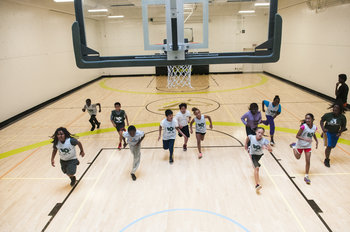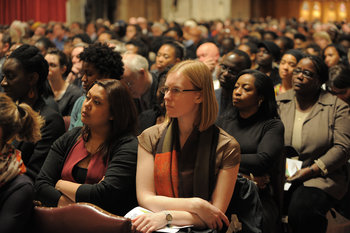Adapting to social context. | Anticipating reactions |
Asking questions to understand opinions / perspectives of others. | Awareness of biases. |
Awareness of different worldviews. | Awareness of disadvantage. |
Awareness of discrimination. | Awareness of norms. |
Awareness of social context. | Awareness of the rules of civility (e.g. remaining respectful in debate and disagreement). |
Compassion for others. | Comprehension of nuanced meaning. |
Considering how your behavior or words affect others. | Considering perspectives. |
Cultural competence | Expressions of empathy. |
Expressions of sympathy. | Identifying devil's advocate -- when someone is saying something just for the purpose of argument. |
Identifying similarities / common interests (avoiding us vs them thinking). | Identifying the contributions of others. |
Identifying underlying emotion / intentions that may differ from what someone is saying. | Knowing how to influence others. |
Knowledge / appreciation of culture. | Knowledge / appreciation of language. |
Knowledge / appreciation of social groups. | Knowledge of history. |
Knowledge of social convention / sensibilities. | Not making assumptions about people based on how they look or their background. |
Not reading too much into things -- not imagining emotions, meaning and intent that doesn't exist. | Not taking things too seriously (e.g. ability to enjoy humor). |
Noticing when you are being sidelined. | Perceiving social status. |
Predicting perspectives in different situations (e.g. how one person is likely to feel about a topic). | Reading emotion |
Reading how people feel about others. | Reading how people feel about you. |
Reading intent | Reading social cues |
Reading the strengths / weaknesses of others. | Recognition of differences. |
Self-awareness | The ability to be respectful / polite. |
Tolerance for differences. | Understanding community perspectives (e.g. the likelihood that someone is loyal to their hometown). |
Understanding cultural perspectives. | Understanding different points of view. |
Understanding historical perspectives -- avoiding presentism. | Understanding how you are perceived by others. |
Understanding political perspectives (e.g. conservative vs progressive viewpoints). | Understanding social perspectives (e.g. perspectives based on socioeconomic background). |
Understanding the social needs of others. | Understanding wit and humor. |
Counterexamples
Assuming that people are all the same.Not getting the humor and nuance of things such that you come across as a bore.
Being biased against anyone who isn't "like you."
Taking people literally without reading the emotion and intent behind their words.
Not noticing when you are being sidelined.
Not noticing how others feel about you.
Making assumptions about others that aren't accurate.
Reading too much into things by imagining that you can read other people's thoughts.
Violating a social norm without realizing it.
Inability to communicate effectively / make a good impression with people from different backgrounds from yourself.
| Overview: Social Awareness | ||
Type | ||
Definition | The ability to perceive and handle real world social environments and situations in a productive and positive way. | |
Related Concepts | ||

































